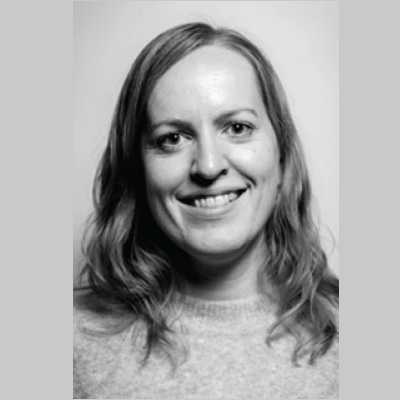Kristine Hole
Pharmacist and post-doctorate researcher
Center for Psychopharmacology
Diakonhjemmet Hospital
Oslo, Norway
Associate Professor
Department of Life Sciences and Health
Oslo Metropolitan University
Oslo, Norway
|
As we head towards our annual congress in Oslo, we will profile some outstanding local scientists. First, we will do a throwback to a great interview from 2021 with Nils Tor Vethe. Nils is a well known IATDMCT member and, in 2009, was the recipient of the Patsalos Prize for best manuscript published in Therapeutic Drug Monitoring. We look forward to hearing about developments with his work at the congress in September.
This month we hear from Kristine Hole, a pharmacist and post-doctorate researcher at the Center for Psychopharmacology of Diakonhjemmet Hospital in Oslo. In 2019, Kristine likewise received the Patsalos Prize. It’s great to hear from Kristine as she paints an impressive picture of personalized treatment in psychiatry, including pleasant pharmacogenetic clinical alerts and clinical use of high-resolution mass spectrometry, with potential to retrospectively determine any analyte. We are headed towards a future where artificial intelligence platforms, national laboratory databases and optimized electronic health systems will contribute to clinical decision support systems, greatly enhancing patient care. |
Can you tell us a little bit about your respective roles? What is a typical day like for you?
I am a pharmacist currently doing my post-doc research within clinical pharmacology. My primary workplace is at Diakonhjemmet Hospital in Oslo, at the Center for Psychopharmacology. This is an interdisciplinary department which performs pharmacogenetic analyses and TDM measurements of psychopharmaceuticals. Our department has extensive research activity based on routine samples from TDM. My current research focus as a post-doc is the effect of pharmacogenetic variation on antidepressant drug exposure, where we combine the pharmacogenetic data from our database with TDM measurements of antidepressants. I also contribute to routine work at the department, where pharmacists and clinical pharmacologists interpret lab results and consult clinicians regarding TDM/pharmacogenetics and psychopharmaceutical challenges in general.
My second workplace is at Oslo Metropolitan University, where I am associate professor at the Department of Pharmacy. I teach classes and seminars within the topics of TDM and clinical pharmacology, and I supervise bachelor, master and PhD students.
Is there anything that your laboratory does, or that is done at your centre, that you would consider innovative?
As an increasing number of patients do pharmacogenetic testing, we need to use the results in a more systematic manner. Centre for Psychopharmacology is involved in the development of a gene-drug-interaction software intended for national use through electronic prescriptions. First, the pharmacogenetic profile of a patient should be recorded in electronic health records. When doctors prescribe a drug interacting with the patient’s pharmacogenetic profile, a pop-up will guide the doctor to choose the appropriate dose for the gene-drug-interaction in question. In Norway, this kind of software is already in place for drug-drug-interactions.
What technological innovations have entered into use during your career that have permitted a change, or evolution, in practice?
Our laboratory recently upgraded the older triple quadrupole mass spectrometers (MS) in exchange for high-resolution MS. This enables new research, because it provides full-scan data with information of all ionizable compounds in the TDM sample. For example, we can retrospectively extract data on compounds of interest, such as drug metabolites or endogenous biomarkers.
How did you become interested in your area of expertise?
The topic for my thesis was pharmacodynamic monitoring of immunosuppressant drugs, and I loved investigating variation in drug exposure and response. Later, I applied for a PhD at Center for Psychopharmacology, where I still work with personalized treatment, mainly in the field of psychiatry.
Is there anything that you’ve seen or heard about recently and thought “I’d like to incorporate that idea at my center”?
A national electronic laboratory database is under development in Norway. This will improve access to pharmacogenetic/TDM results, not only for the doctor who ordered the test, but also for future use. Patients will also have digital access to their own lab results through the database.
What sort of research do you have on the horizon that you think might influence clinical practice in the future?
I am currently part of a greater EU project where the goal is to use artificial intelligence for personalized medicine in depression. The aim of the project is to harmonize data from clinical research to identify robust multimodal biomarkers for the prediction of therapeutic response. An artificial intelligence platform will be the base for developing a decision support system for personalized therapy using multimodal patient profiling.
What do you consider is the future for TDM and CT? What are you excited about? What are the challenges we face?
I think the future for TDM comprises improved electronic health systems. With electronic health records, there is great potential for user-friendly decision-support-tools which integrate TDM, pharmacogenetics and clinical data.
The content of the IATDMCT Blog does not necessarily have the endorsement of the Association.



